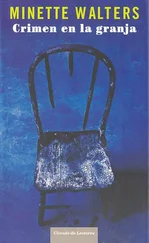Jess would have said they weren’t heavy enough, but they started me thinking about what else was in the house-the axe in the woodshed; rakes, spades and forks in the toolshed; a hammer in the scullery; empty wine bottles that could be turned into razor sharp clubs. I can’t explain why none of this had occurred to me before, except that my plan had always been to leave through the nearest exit and find a place to hide.
Peter put it down to MacKenzie’s manipulation of my “fight or flight” response. In simple terms, I’d been conditioned to submit rather than rebel, but that doesn’t explain why one of my recurring dreams was an intensely physical one where I bludgeoned MacKenzie to death. The desire to kill him was always there.
Perhaps fear has to be taken one step at a time. Perhaps the mind needs to heal before it can switch from one automatic response to another. Perhaps we all need to suffer the contempt of a Jess Derbyshire before we remember that fighting is possible. Who can say? I do know that I had a new sense of purpose as I climbed the ladder to the attic.
The roof space ran the entire length of the house. I found a light switch beside the trapdoor which lit a series of bulbs that hung from the rafters. Half of the filaments had blown but there were enough still working to lift the gloom. A pathway of planks had been laid across the joists to make access easier, but I still had to navigate my way past two chimney-stacks before I found a decent signal. The whole place was filthy and draped with cobwebs, and from the odd skittering near the eaves I guessed I had bats and mice for company.
In the event, it was a wasted exercise. There was no answer from the flat or from Dad’s mobile. Rather than leave messages, I fished Jess’s piece of paper from my pocket and called the number of my mother’s new hotel, but when I asked to be put through to Marianne Burns’s room I was told she’d checked out.
“Are you sure?” I asked in surprise. “She was definitely there this morning. I was given this number to call.”
“One moment.” There was a pause. “Yes, I can confirm Mrs. Marianne Burns paid her account at three o’clock this afternoon.”
“Did she say where she was going…leave a number for me to call?”
“May I ask what your name is, madam?”
“Connie…Connie Burns. I’m her daughter.”
“I’ll check for you.” Another pause. “I’m sorry, Ms. Burns. There are no messages and no forwarding address. Is there anything else I can help you with?”
“No…yes,” I corrected immediately. “Did anyone come to collect her?”
“I don’t know.”
“Can you find out?”
“We’re a big hotel, Ms. Burns. Guests come and go all the time. We don’t keep track of their movements.”
“Then can you check if there was a phone call to her room? And if so, is there any way of finding out where it came from? I don’t understand why she left.”
“I’m sorry,” the man said again with pseudo-regret. “We can’t divulge private information about our guests. Would you like me to make a note that you called in case your mother returns?”
I thanked him and rang off, then redialled the flat and my father’s mobile. I left messages on both phones, just saying, “Please call me,” and for good measure sent a text to his mobile: “Where are you? What’s happening? Mum has checked out. Am worried. C.” I hoped he’d remember to call the landline, but as I climbed down the loft ladder, I placed my mobile on the frame of the trapdoor opening. There was enough of a signal for it to ring, although I wasn’t optimistic about reaching it before the messaging service kicked in. It was worth a try, however.
Of course I assumed MacKenzie was involved in some way-I was too paranoid not to-although I didn’t understand why that should have resulted in my mother leaving her hotel. How could he know where she was unless my father told him? I had enough faith in Dad to believe he’d sacrifice every fingernail before he put my mother in danger. And why would MacKenzie ask the question anyway? Why bother with my mother when it was me he wanted? It didn’t make sense.
I kept telling myself the more likely explanation was that Mum had staged her own little mutiny and decided to go back to the flat. But in that case why weren’t they answering the phone? I stood irresolutely on the landing, wondering what to do. Wait a couple of hours in case they’d gone out for a meal? Try to contact Alan? Call the local police and ask them to check the flat? Even Alan wouldn’t take me seriously. Only a madwoman reports her parents missing after half an hour’s attempt to locate them.
Despite being convinced my mobile would ring the minute I was out of earshot, I went downstairs to see if my mother had emailed. She hadn’t. There was nothing new from her since Thursday afternoon. I played the answerphone in case I’d missed a call but the only messages were those I’d already heard. On the off-chance that she’d decided to return to their previous hotel, I phoned there, only to be told Mr. and Mrs. Burns had left the previous morning. I even tried my father’s office, while knowing that no one would answer at eight o’clock on a Saturday night.
It’s said that our minds can process fifty thousand thoughts a day. I’ve no idea if this is true, or how thoughts can be counted, but I do know that trying to pre-guess events within a knowledge vacuum creates intolerable anxiety. It doesn’t matter how many times you tell yourself that “no news” is “good news,” your brain will always assume the worst. And in the end your instinct goes with what you know to be true.
Shit happens.
Extracts from notes, filed as “CB16 -19 /05 /04 ”
…I think there were three dogs and I guessed they were Alsatians because that was the breed I saw in the office with MacKenzie at the Baghdad academy. I could feel their breath against the tops of my thighs when they stood around me, so they were the right size for Alsatians. On a couple of occasions he encouraged them to lick me and I heard the camcorder running
(can’t deal with that at the moment)
…So much depended on MacKenzie being able to control them. So much depended on him being willing to control them. I don’t know if he was clever enough to understand the psychology of that, or if he’d learnt the technique from the torturers and murderers he’d worked with, but I was ready to do anything rather than face those dogs. It’s why I came to love the crate. Being in a cage offered safety in a way that nothing else did…
IN THE DYING days of apartheid I wrote a piece on South African gold-miners with silicosis and emphysema. Statistics suggested that more blacks contracted the diseases because they worked deeper in the mines and had a higher exposure to silica dust after blasting, but it was surprisingly hard to find long-term black sufferers although I interviewed a number of elderly white men with the complaints.
When I asked a doctor why whites seemed to survive longer with respiratory problems-expecting to be told they had access to better medication-he explained it in terms of exertion. “The more demands anyone makes on his body, the more oxygen he needs. If a black with emphysema could sit in a chair all day, and be waited on hand and foot by a maid, he’d survive just as long. When a man can’t breathe, it kills him just to get up and cook a meal.”
I thought of that doctor as I waded through treacle, trying to gather weapons together. He should have added that failing to cook a meal will also kill you since any engine will seize up without fuel. On my trip to retrieve the axe, I succumbed to the double whammy of uncontrollable anxiety fluttering in my chest and a two-stone weight loss in three months, and folded wearily onto a pile of logs in the woodshed. It was laughable to think about whirling an axe at MacKenzie when I barely had the energy to carry it back to the house.
Читать дальше












